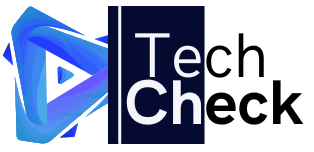Is artificial intelligence a utopian dream or a dystopian nightmare? The truth, as always, lies somewhere in between. Artificial intelligence (AI) is rapidly transforming our world, offering incredible potential benefits but also raising profound ethical concerns. From self-driving cars to facial recognition technology, AI is already impacting our lives in ways we may not fully understand, making it crucial to navigate its challenges responsibly.
The Promise and Peril of AI
AI promises a future filled with incredible advancements. Imagine a world where diseases are cured, climate change is mitigated, and poverty is eradicated—all through the power of intelligent machines. The potential for good is undeniable. We're already seeing AI assist in medical diagnoses, personalize education, and optimize energy consumption. Yet, this utopian vision is overshadowed by a very real dystopian counterpoint. The potential for misuse is equally immense. Think job displacement due to automation, algorithmic bias perpetuating societal inequalities, and the possibility of autonomous weapons systems making life-or-death decisions without human intervention. The ethical considerations are complex and multifaceted.
Algorithmic Bias and Fairness
One major ethical challenge of AI is algorithmic bias. AI systems are trained on data, and if that data reflects existing societal biases, the AI will inevitably perpetuate and even amplify those biases. This can lead to unfair or discriminatory outcomes in areas such as loan applications, hiring processes, and even criminal justice. Ensuring fairness and mitigating bias requires careful data curation, algorithm design, and ongoing monitoring of AI systems. This is a significant challenge, requiring both technical expertise and a deep understanding of social justice.
Privacy and Surveillance
The increasing use of AI in surveillance technologies raises serious privacy concerns. Facial recognition, data mining, and predictive policing all have the potential to erode individual privacy and freedom. The question of how to balance security with individual liberties is a complex one, demanding careful consideration of ethical frameworks and legal regulations. Striking this balance is crucial to avoid a future where our lives are constantly monitored and controlled by AI systems, potentially leading to an erosion of our fundamental rights. We need a thoughtful discussion surrounding the ethical implications of mass surveillance.
Autonomous Weapons Systems
The development of lethal autonomous weapons systems (LAWS), also known as killer robots, represents perhaps the most pressing ethical challenge in AI. These weapons have the potential to make life-or-death decisions without human intervention, raising profound questions about accountability, responsibility, and the very nature of warfare. Many experts warn of the dangers of an AI arms race, urging international cooperation to prevent the development and deployment of LAWS. The debate over LAWS needs to be approached cautiously, considering the humanitarian implications of delegating the power of life and death to machines.
Job Displacement and Economic Inequality
As AI-powered automation becomes more prevalent, there are growing concerns about job displacement and the exacerbation of economic inequality. While AI can create new jobs, it's also likely to displace many existing jobs, particularly those involving repetitive or manual tasks. Addressing this challenge requires proactive measures such as retraining programs, social safety nets, and a focus on creating jobs that are uniquely human and cannot be easily automated. Failing to address this issue could lead to social unrest and significant economic disparity.
Navigating the Ethical Landscape of AI
The ethical challenges posed by AI are not insurmountable. By proactively engaging in ethical discussions and developing robust regulatory frameworks, we can harness the power of AI for good while mitigating its risks. This requires a multi-stakeholder approach, involving researchers, policymakers, industry leaders, and the public.
The Role of Regulation
Governments have a crucial role to play in establishing clear ethical guidelines and regulations for AI development and deployment. These regulations should focus on promoting fairness, transparency, accountability, and human oversight. International cooperation is essential to ensure that AI regulations are effective and consistent across different countries.
The Importance of Transparency and Explainability
AI systems should be designed to be transparent and explainable, so that we can understand how they make decisions. This is particularly important in high-stakes applications, such as healthcare and criminal justice. Explainable AI (XAI) is a rapidly growing field that is focused on developing techniques to make AI systems more interpretable.
The Need for Human Oversight
Human oversight is crucial to ensure that AI systems are used responsibly and ethically. This means involving humans in the decision-making process, particularly in cases where the consequences of AI errors could be significant. Human-in-the-loop systems, where humans are involved in the decision-making process, can help to mitigate the risks of AI bias and errors.
Embrace the future of AI ethically and responsibly. Take action today to shape a future where AI benefits all of humanity. Let's work together to ensure AI is used for good and that its potential benefits are shared broadly.
The future of AI depends on our choices today. Let's make them wisely. Join the conversation and help shape the future of AI ethics. Find out more and get involved!




